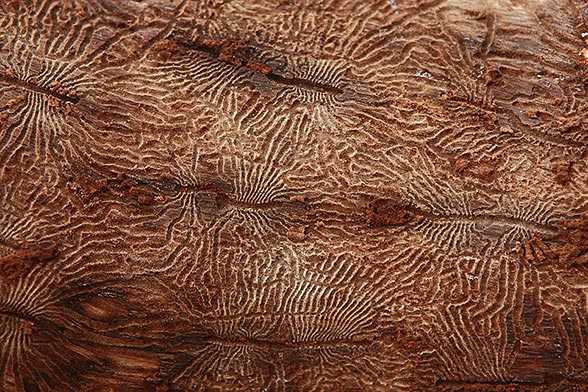Bark Beetles Kill the Rocky Mountains Forests

Rocky Mountain National Park is one of the many National Parks in the United States that protects spectacular alpine environments.
The Rocky Mountains were home first to the indigenous peoples, including the Apache, Blackfoot, Cheyenne, but today, with over 300 miles of hiking trails, wildflowers and wildlife, the park has more than 3 million visitors each year. However, Rocky Mountain’s signature pine forests are succumbing to a huge infestation of mountain bark beetles. And so far the war between the pine forest and insects is being won by the beetles that leave behind red tree bodies.
The beetle is only as big as a grain of rice, but aggressively attacks pine woods, mainly the Lodgepole and Limber pines. The insect drills a gallery (or tunnel) in pine wood, lays its eggs, injects fungus and feeds on rich cambium, which eventually kills the tree.
Bark beetles are normally welcomed for playing a key role in regulating the health of a forest by attacking old or weakened trees. However, in the last decade, there’s been a real population explosion. One reason is the suppression of fires that allowed the trees to grow big enough to be susceptible to beetles. The second reason is climate change. Hot and dry summers and mild winters are the death of forests and a threat to the tourism industry.
In Montana, Wyoming and Colorado in the US and British Columbia and Alberta in Canada, millions of acres of trees have been lost to these insects. According to foresters, the situation will get worse in the next years. The ecosystem shift is potentially huge: beetles are killing the white-barked pine trees, which grow nuts rich in fat that are essential to grizzly bears in the fall. The snow melts faster, rivers grow and destroy salmon habitat. Birds that normally help regenerate the forests fly away and loss of canopy leads to drought during the summer.
At the moment, the future looks bleak: it seems that the beetle population will only be controlled if cold temperatures return to the Rockies or another solution is found.
A Pine Forest Devastated by Bark Beetle